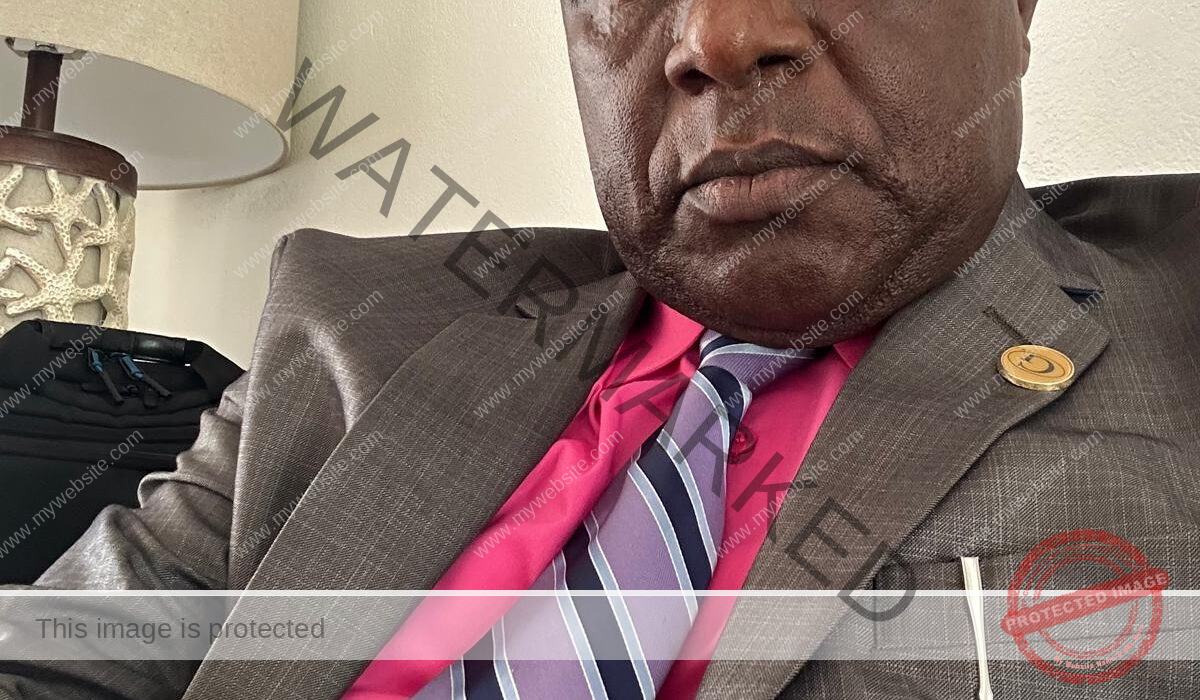Professor Ayim a shining example for Ambazonian youth and a testimony to the power of purpose, education, and service.
By Dr. Martin Mungwa, Ph.D, F.ASCE Formerly Engineering Manager, Civil Engineering Substation Project Engineering Section, Consolidated Edison, New York City, USA
In the highlands of Ngwenjin City, within the culturally rich Azem-Njwekum area of Widikum, a humble son of Ambazonia was born—destined not only to touch lives in his homeland but to leave a lasting impact on global health education. Today, Professor Martin Ayong Ayim is recognized as a distinguished educator, humanitarian, and global health leader. His story is a shining example for Ambazonian youth and a testimony to the power of purpose, education, and service.
A Life of Learning and Leadership
Currently serving as Dean of the School of Health Sciences at Charisma University (Turks and Caicos Islands, online) and as Professor of Public Health Education at Grambling State University in Louisiana, USA, Prof. Ayim exemplifies academic distinction and professional commitment.
His educational journey began with a Bachelor of Science in Health Administration (1987) and a Master of Public Health in Community Health Education (1989) from Indiana University, followed by a Ph.D. in Health Education from Texas A&M University in 1993. He is a Certified Health Education Specialist (CHES), a designation reflecting his expertise and dedication to professional standards in the United States.
From Nursing to Nation-Building
Between 1973 and 1984, Prof. Ayim served as a Community Health Nurse under Cameroon’s Ministry of Public Health. These formative years opened his eyes to the challenges of communicable diseases and inspired him to pursue advanced training with a singular mission: to improve health outcomes through education and culturally appropriate intervention.
His doctoral dissertation—“A Comparison of Health Education Perceptions Between the Chamba and Widikum Ethnic Groups”—was a groundbreaking work that explored how cultural context influences public health outcomes. It laid the foundation for much of his future scholarship focused on Sub-Saharan Africa’s health realities.
A Global Voice for Community Health
Prof. Ayim’s teaching résumé spans institutions like Saint Monica University in Buea, Charisma University, and Grambling State University, where he pioneered the development of MPH and Ph.D. programs in Health Education and Health Promotion. He is experienced with online platforms such as Moodle, Canvas, and Google Classroom, positioning him as a global academic mentor.
His scholarly publications in BMC, Cureus, and the Journal of Health, Medicine, and Nursing reflect his focus on infectious diseases, health promotion, and low health literacy. His book, “Communicable Diseases for School and Community Health Promotion: A Global Health Perspective,” is a vital resource for students and professionals committed to disease prevention in resource-limited settings.
Prof. Ayim is also the architect of the INDICATE Model, a community-based health promotion framework that emphasizes culturally relevant education. He led the Diaspora Health Literacy Advocacy Team (DHLAT) in developing the Africa-Model Comprehensive School Health Education Curriculum (AM-CSHEC)—a landmark initiative now guiding school-based health education across Africa.
Recognition, Grants, and Professional Service
His accolades speak volumes. Prof. Ayim is a Robert Piper and Eddie Robinson Jr. Endowed Professor at Grambling State University. He was named Health Educator of the Year in Louisiana in 2004, earned the Louisiana Ethnic Minority Award in 2005, and was nominated in 2011 for the Louisiana Health Education Honor Award. He also served on the Governor’s Task Force to design grade-level expectations in health education across K–12.
His grant-writing expertise secured major U.S. federal funding from the Health Resources and Services Administration (HRSA) for the Morehouse Parish Community Health Outreach Project, addressing critical health needs in underserved Louisiana communities.
As President of the DELTA SOPHE chapter, which spans Louisiana, Mississippi, and Alabama, Prof. Ayim has advanced the mission of the Society for Public Health Education (SOPHE) through collaboration, mentorship, and advocacy.
A Visionary with a Heart for Humanity
Driven by compassion and a love for people, Prof. Ayim established Community Health Promotion 360, a nonprofit that promotes health and sanitation in rural Sub-Saharan Africa. The proceeds from his published works support borehole water projects and provide aid to orphans and vulnerable children (OVC). His humanitarianism is inspired by his late mother’s legacy and continues to serve as a beacon for equity and dignity in public health.
Prof. Ayim is also a proud Rotarian and a committed human rights advocate, championing the completion of the UN decolonization process and the right to self-determination for peoples under occupation, including the people of Ambazonia. He firmly believes that sovereignty, health, and education are intertwined in the quest for justice and peace.
A Model for the Next Generation
With unwavering dedication, Prof. Ayim is pursuing his professional goals to:
Teach and conduct research on infectious disease epidemiology;
Lead efforts to raise health literacy across Sub-Saharan Africa;
Author relevant texts in Epidemiology and Health Promotion;
Expand community impact through his NGO and academic networks.
His educational philosophy reflects his servant-leader heart: “Education without application to make a difference—especially for the underserved—is not complete.”
Conclusion: The Ayim Standard
In a world that often overlooks the contributions of those from conflict-ridden or forgotten regions, Professor Martin Ayong Ayim has not only risen—he has remained rooted. He embodies the Ambazonian spirit of resilience, integrity, and excellence. From the foothills of Widikum to global platforms in the USA and Caribbean, Prof. Ayim is living proof that the fight for justice can walk hand-in-hand with the work of healing.
For Ambazonian youth and scholars across Africa, his legacy is not merely aspirational—it is achievable. And for a people striving to reclaim their dignity, his example offers both roadmap and motivation.
For inquiries, collaborations, or donations to support rural health literacy and humanitarian projects, contact Community Health Promotion 360 or the DHLAT initiative.

